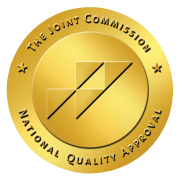Neurodivergent Mental Health Care: A New Look
Imagine walking into a room with multiple radios playing. However, every radio station is tuned to a different genre. Now, instead of music, they’re broadcasting thoughts, feelings, and perceptions and want you to engage.
In a similar fashion, a neurodivergent individual experiences a multitude of thoughts and sensory inputs simultaneously. It is a mind that processes the world uniquely and, indeed, remarkably. This is why neurodivergent mental health care is such an important topic.
Neurodivergence isn’t a straightforward concept—or a static one. So, let’s unpack it.
What Exactly Is Neurodivergent Mental Health Care?
First and foremost, being neurodivergent means that your brain processes, perceives, and interacts with the world in ways that differ from what society considers “typical.” This term embraces a spectrum of experiences, including autism, ADHD, dyslexia, and many others.
It’s important to recognize that neurodivergence isn’t a flaw or a deficit—it’s simply a different way of being, with its own strengths and challenges. Understanding this can help us approach neurodivergence with greater kindness, both toward ourselves and others. With that in mind, let’s explore how neurodivergence and mental health intersect.
Connecting the Dots: Neurodivergence and Mental Health Disorders
Neurodivergence and mental health disorders are not one and the same, but they often share the same dance floor. For instance, someone with ADHD may experience heightened anxiety or depression as a byproduct of their ADHD challenges.
Therefore, while neurodivergence is not a mental health disorder per se, the challenges posed by a neurodivergent mind can benefit from specifically designed neurodivergent mental health care.
Common Mental Health Disorders Among the Neurodivergent
Depression, anxiety, and obsessive-compulsive disorder are not just buzzwords. They are significant challenges that frequently appear alongside neurodivergent conditions. This isn’t coincidental but rather a reflection of the unique pressures and sensory landscapes experienced by those who are neurodivergent.
There is no single description for a person who is neurodivergent. Each person is unique in how they interact with how their brain functions. However, here are some typical ways various disorders intersect with neurodivergence.
Depression:
- Social Isolation: Neurodivergent individuals may face social challenges due to differences in communication and social interaction styles. This can lead to feelings of isolation and loneliness, which are significant risk factors for depression.
- Perceived Failure: Repeated difficulties in school, work, or social environments can lead to a persistent sense of failure, lowering self-esteem and increasing the risk of depression.
Anxiety:
- Overstimulation: Many neurodivergent people have heightened sensory sensitivities. The everyday hustle and bustle that is merely distracting to neurotypical individuals can be profoundly unsettling, leading to anxiety.
- Predictability Needs: The need for predictable routines is often shared amongst neurodivergent people. Unexpected changes—whether minor or major—can trigger intense anxiety.
Obsessive-Compulsive Disorder (OCD):
- Control Through Rituals: For some neurodivergent individuals, engaging in repetitive behaviors or rituals can be a way to exert control over an otherwise unpredictable environment. This need for control and certainty can manifest as OCD.
- Heightened Focus on Specific Interests: While a focused interest is often seen as a hallmark of neurodivergence, it can sometimes morph into compulsive behaviors, particularly if the individual uses these interests to manage stress or anxiety.
Customizing Mental Health Treatment for Neurodivergent Individuals
Standard mental health treatments are not one-size-fits-all, and this is especially true for those who are neurodivergent. For example, traditional therapy sessions that depend heavily on verbal communication may not be ideal for someone with autism.
Instead, therapies that leverage strengths and accommodate individual sensory preferences can be more effective. This might include the use of visual aids, activity-based therapies, or structured routines that provide a predictable therapy environment.
Neurodivergent Mental Health Care: What Works Best?
Behavioral therapies, such as Cognitive Behavioral Therapy (CBT), can be adapted to be more concrete and structured, thus playing to the strengths of those with neurodivergent traits. Additionally, incorporating interests and passions into the therapy can significantly enhance engagement and outcomes.
Moreover, supportive therapies like occupational or speech therapy are often crucial adjuncts, helping individuals manage the nuances of their neurodivergent traits effectively.
Intensive Outpatient Programs (IOP): Why Consider Them?
IOPs can be a game-changer in neurodivergent mental health care. These programs offer structured therapy sessions several times a week, providing continuity of care that is crucial for building new coping strategies and habits.
They also offer a supportive environment where individuals can connect with others facing similar challenges, which can be incredibly validating and empowering.
Why Neurodivergent Mental Health Care Matters
Understanding and supporting neurodivergence in mental health care isn’t just about providing a service—it’s about changing narratives and enhancing lives. It’s about recognizing that when a neurodivergent individual seeks help, they aren’t just looking for coping mechanisms. They’re looking for a way to thrive in a world that processes differently. They are looking for tested strategies that will help things click. And that’s a goal worth pursuing, isn’t it?
Getting Neurodivergent Mental Health Care in Orange County
If you or someone you know is neurodivergent and navigating the complexities of mental health challenges, consider Lido Wellness Center in Newport Beach, CA. Our Intensive Outpatient Program is designed specifically to support neurodivergent individuals through tailored therapies that address both their unique needs and mental health conditions. Connect with us today to learn how our specialized care can help you or your loved one live a more fulfilling life.

